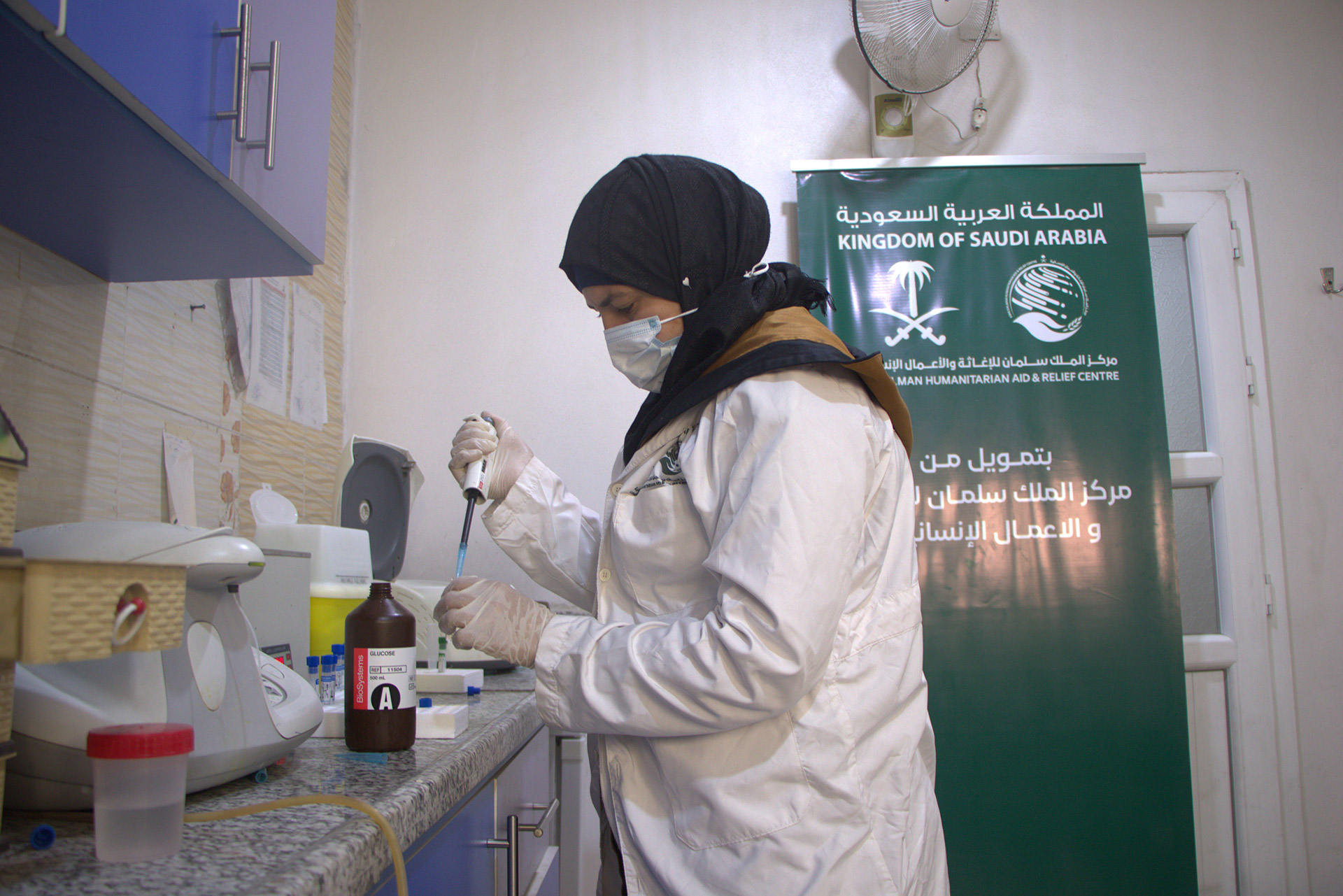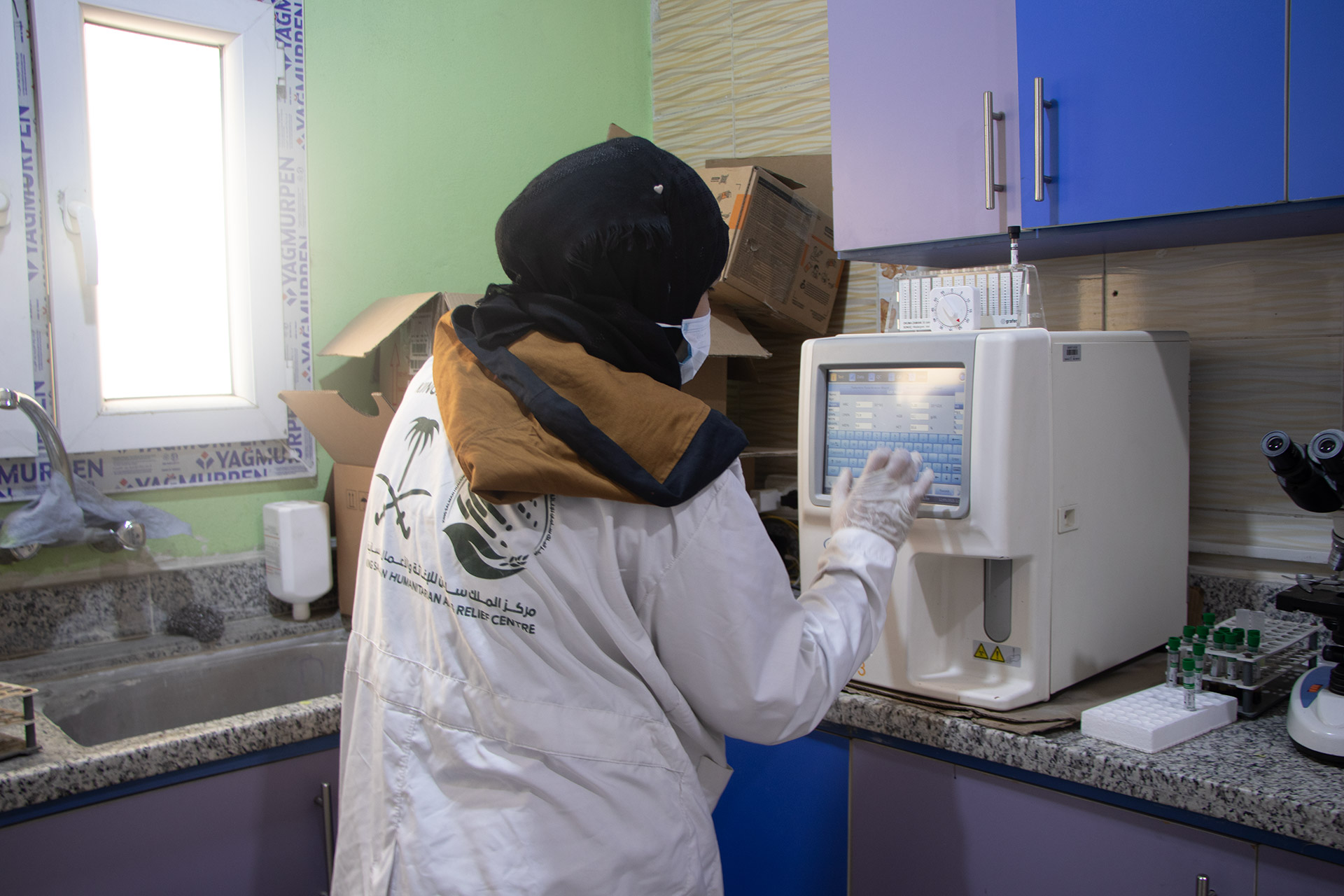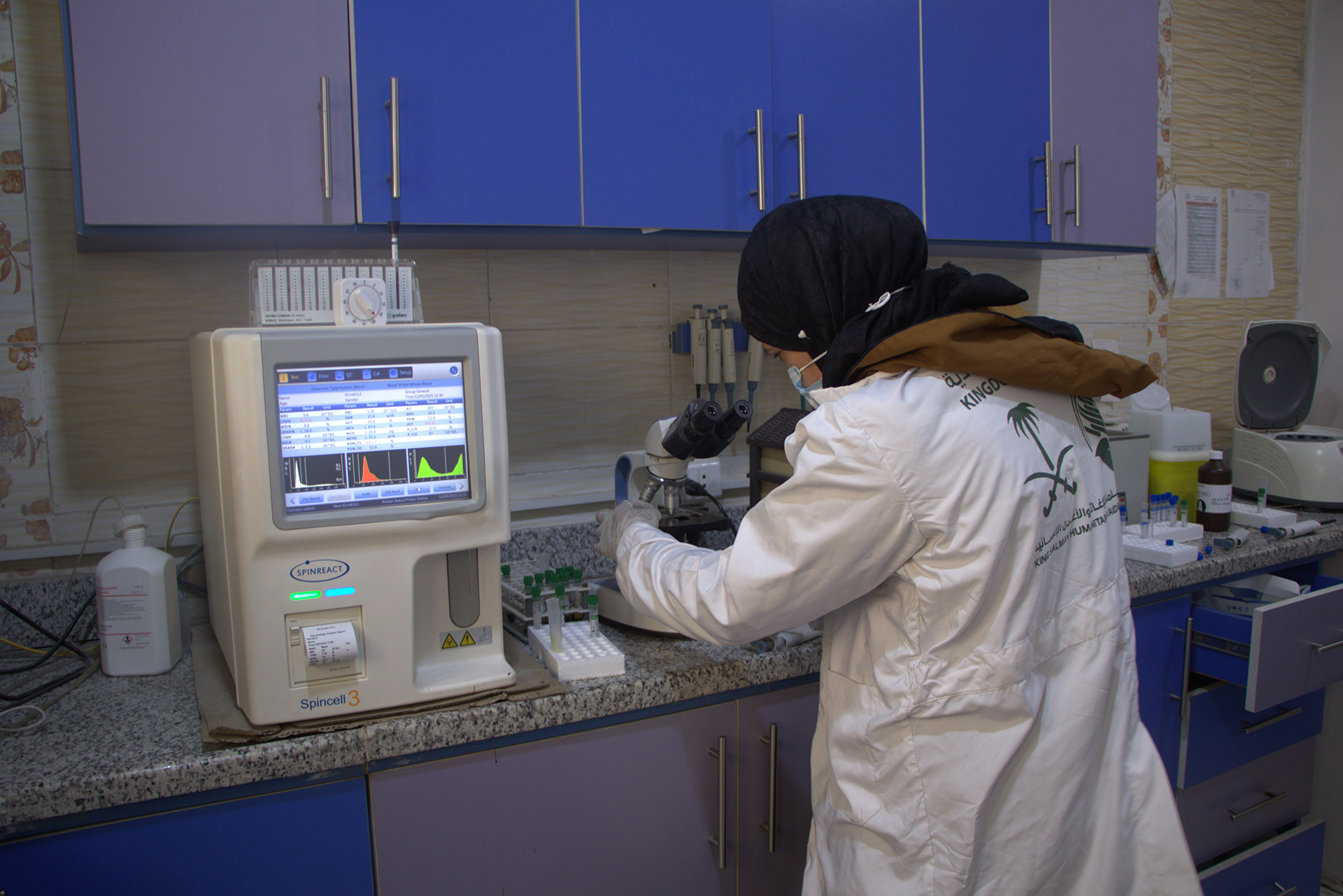17 November 2025, Aleppo, Syrian Arab Republic – When families arrive at Al-Bab Health Centre in eastern Aleppo, many stop first at the small laboratory tucked behind the consultation rooms. Inside, Maryam Ahmad Al-Khalaf works with calm precision – preparing samples, analyzing results, and reassuring patients who are anxious about what their tests might reveal.
 Maryam Ahmad Al-Khalaf prepares a blood sample inside the laboratory at Al-Bab Health Centre in eastern Aleppo. Photo credit: WHO
Maryam Ahmad Al-Khalaf prepares a blood sample inside the laboratory at Al-Bab Health Centre in eastern Aleppo. Photo credit: WHO
Maryam was displaced from Deir Hafer several years ago and rebuilt her life in Al-Bab, where she now lives with her husband and three children. “This community became home for us,” she says. “Working here is my way of giving something back.”
As the centre’s laboratory technician, Maryam performs the full range of tests requested by doctors and midwives – from basic blood counts and blood glucose tests to infection markers that help identify conditions requiring urgent attention. These results guide nearly every clinical decision in the centre, making the laboratory a quiet but essential part of primary health care.
 Maryam reviews laboratory results at Al-Bab Health Centre. Photo credit: WHO
Maryam reviews laboratory results at Al-Bab Health Centre. Photo credit: WHO
Clinicians speak openly about how much they rely on her work. With limited resources and high patient loads, accurate diagnostics are the foundation of safe care. “Her results help us make the right decisions for our patients,” says one of the centre’s doctors. “In many cases, the lab findings determine whether someone can be treated here, needs referral, or requires close follow-up to prevent complications.”
The services at Al-Bab Health Centre are delivered in coordination with the Ministry of Health and implemented on the ground through Alameen Organization whose teams ensure that essential health care remains available to communities with limited options.
Since late 2024, continued support from the King Salman Humanitarian Aid and Relief Centre (KSrelief) has helped WHO keep 50 health facilities operational across northwest Syria, including Al-Bab. This contribution has ensured uninterrupted access to primary, secondary, and specialized services – from essential medicines and supplies to dialysis care, which remains a growing need in the region.
 Maryam conducts microscopy work inside the laboratory at Al-Bab Health Centre. Photo credit: WHO
Maryam conducts microscopy work inside the laboratory at Al-Bab Health Centre. Photo credit: WHO
For Maryam, this stability is what allows her to serve people with dignity. “When the centre has what it needs, we can focus fully on patients,” she explains. “A single test result can change someone’s treatment plan. Reliable services mean we can detect issues early, before they become dangerous.”
And as she reflects on the support that keeps her laboratory functioning, she adds: “People here depend on these services. The support we receive helps us continue our work without interruption – and that means families get answers and care when they need it most.”
In Al-Bab, where health services play a vital role in daily life, Maryam’s work ensures families receive timely, quality care close to home – so no one must forgo essential diagnostic testing.








